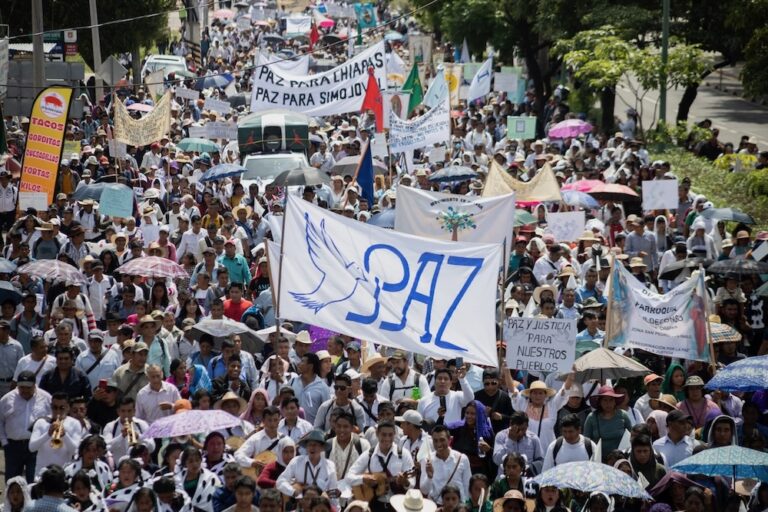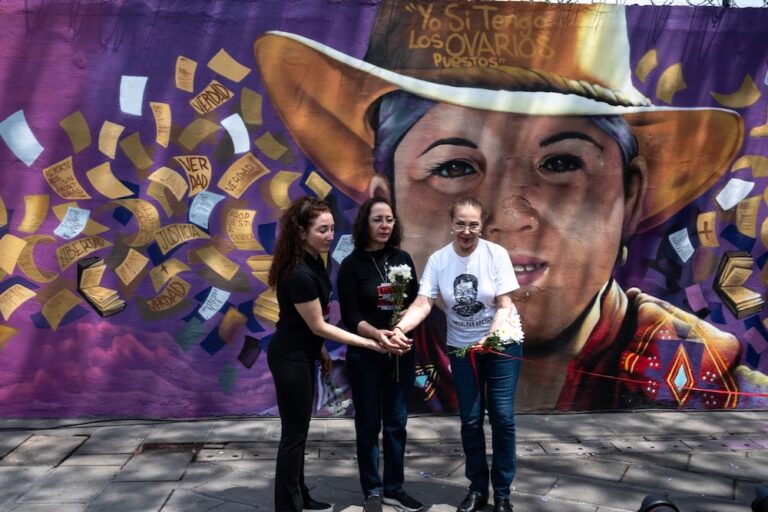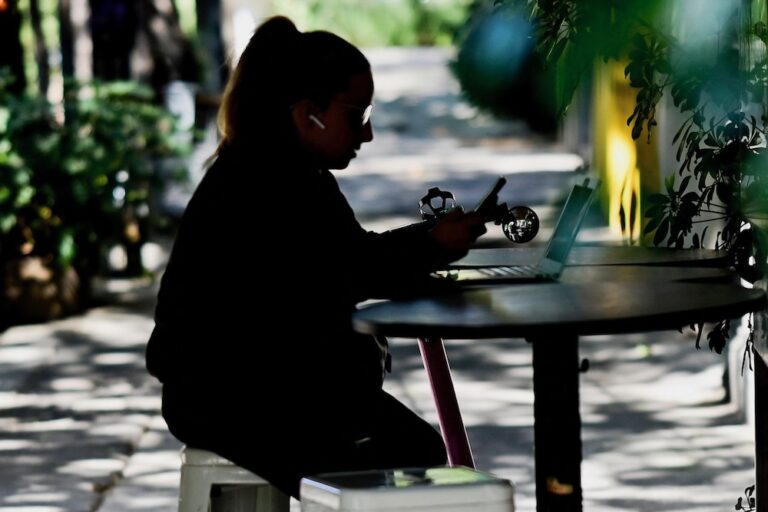Authorities were quick to deny that Chávez's murder was related to her activism and poetry highlighting femicide in Ciudad Juárez.
(WiPC/IFEX) – 8 March 2011 – On the occasion of International Women’s Day 2011, the Writers in Prison Committee of PEN International (WiPC) commemorates the poet and women’s rights activist Susana Chávez Castillo, who was murdered in the border town of Ciudad Juárez, Chihuahua state, on 6 January 2011. Chávez was active in protests and social groups calling for justice for the hundreds of women killed in the Juárez area since the early 1990s. The authorities have denied that her murder was related in any way to her activism and poetry or to organised crime, despite the recent murder and harassment of numerous other local rights defenders and the area’s long record of extreme violence against women. Two months on, Chávez’s murder remains unsolved. The WiPC calls on the Mexican authorities to conduct a full and impartial investigation into her death, including due consideration of any possible links to her activism and poetry.
Chávez (born 5 November 1974) was a prominent poet who led protests against the unsolved murders of women raped and killed in Ciudad Juárez, Chihuahua state, on the border with the United States, since the 1990s. She was also active in organisations supporting the families and friends of the deceased women, including the group Return Our Daughters (Nuestras Hijas de Regreso a Casa). Chávez coined and popularised the slogan “Not one more death” (“Ni una muerte más”), which was used at the protests, and took part in poetry readings that she dedicated to murdered women. Her poem “Sangre Nuestra” (Our Blood) is written from the perspective of a victim.
Chávez was herself murdered and mutilated in Ciudad Juárez in early January 2011. Her body was found strangled with a bag over her head and her left hand cut off in the city centre on 6 January but was only identified five days later.
The authorities were quick to deny that Chávez’s murder was related to her activism and poetry highlighting the “femicides”, or to organised crime. The Chihuahua state attorney general’s office said that Chávez was killed by three teenage boys she had met while out drinking. The teenagers allegedly invited her to a house belonging to one of them and murdered her while they were drunk and high on drugs, cutting off her hand to try to make the murder look as if it was connected to organised crime. All three suspects were arrested and have been charged with her murder. The Mexican National Commission of Human Rights is following the case.
Chávez’s death took place three weeks after the murder of human rights defender Marisela Escobedo Ortiz, a mother who fought tirelessly for justice for her daughter, Rubí Marisol, who was killed in Ciudad Juárez in 2008. Escobedo was shot dead while picketing outside the governor’s palace in the state capital of Chihuahua city on 16 December 2010. At least five other rights activists have reportedly been killed in Chihuahua in the last two years, while others have been threatened and attacked.
Amnesty International stated that Chávez was apparently a victim of the violence against women she campaigned against, and that her murder is a further indication that such violence is again on the rise in Ciudad Juárez and Chihuahua.
Some 1,000 mainly poor women have been murdered in the Juárez area since 1993, 300 of them in 2010 alone. Most of the murders remain unsolved and have been variously attributed to serial killers, drug cartels, domestic or sexual violence. As drug cartels continue to fight each other and the military for access to the US market, Ciudad Juárez is now the most violent city in Mexico, with over 3,000 people murdered in 2010 out of a population of just over a million.
Mexico is also one of the most dangerous countries in the world to work as a journalist. Since January 2004, 36 writers – 35 print journalists and one author – have been murdered, while nine other print journalists have disappeared. Few if any of these crimes have been properly investigated or punished.
RECOMMENDED ACTION:
Please send appeals:
– protesting the murder and mutilation of Chávez
– calling for a full and impartial investigation into her murder, including due consideration of any possible links with her activism and poetry, with the involvement of the Special Prosecutor’s Office for Crimes against Journalists and Freedom of Expression
– demanding effective investigations into all other unsolved killings and disappearances of writers, journalists and human rights activists in Mexico
APPEALS TO:
President
Lic. Felipe De Jesús Calderón Hinojosa
Presidente de los Estados Unidos Mexicanos
Residencia Oficial de los Pinos Casa Miguel Alemán
Col. San Miguel Chapultepec, C.P. 11850, DISTRITO FEDERAL, México
Fax: +52 55 5093 4901/ 5277 2376
E-mail: felipe.calderon@presidencia.gob.mx
Salutation: Señor Presidente / Dear Mr President
Attorney General
Lic. Arturo Chávez Chávez
Procurador General de la República
Av. Paseo de Reforma No. 211-213, Piso 16
Col. Cuauhtémoc, Defegacion Cuauhtémoc
México D.F. C.P. 06500
Tel: +52 55 5346 0108
Fax: +52 55 53 46 0908 (if a voice answers, ask “tono de fax, por favor”)
E-mail: ofproc@pgr.gob.mx
Salutation: Señor Procurador General / Dear Attorney General
Special Prosecutor for Crimes against Journalists and Freedom of Expression
Dr Gustavo Salas Chávez
Fiscal Especial para la Atención de Delitos Cometidos contra Periodistas (FEADP)
E-mail: feadp@pgr.gob.mx
Please also send copies of your appeals to the Mexican Embassy in your country – see http://www.sre.gob.mx/acerca/directorio/embajadas/dirembajadas.htm
Please send appeals immediately. Check with WiPC if sending appeals after 8 May 2011.



